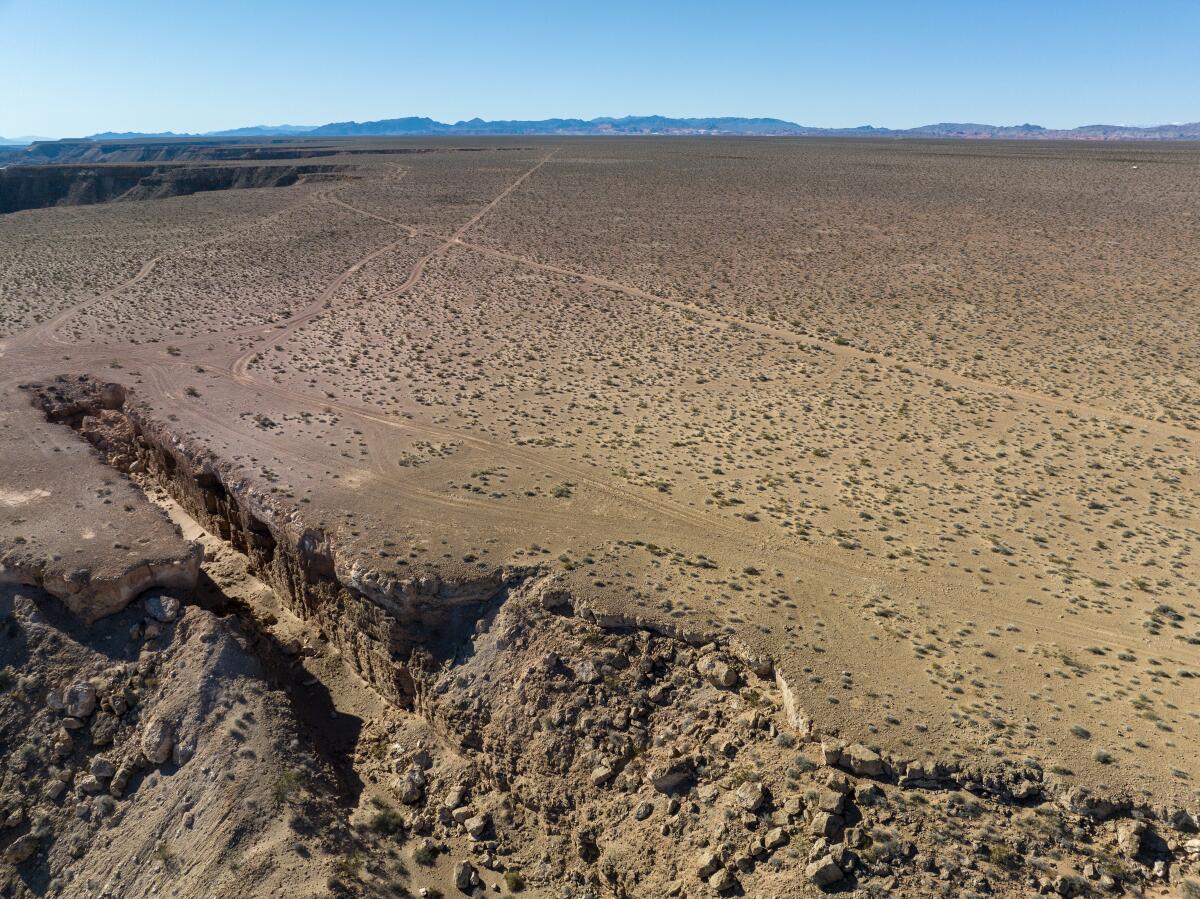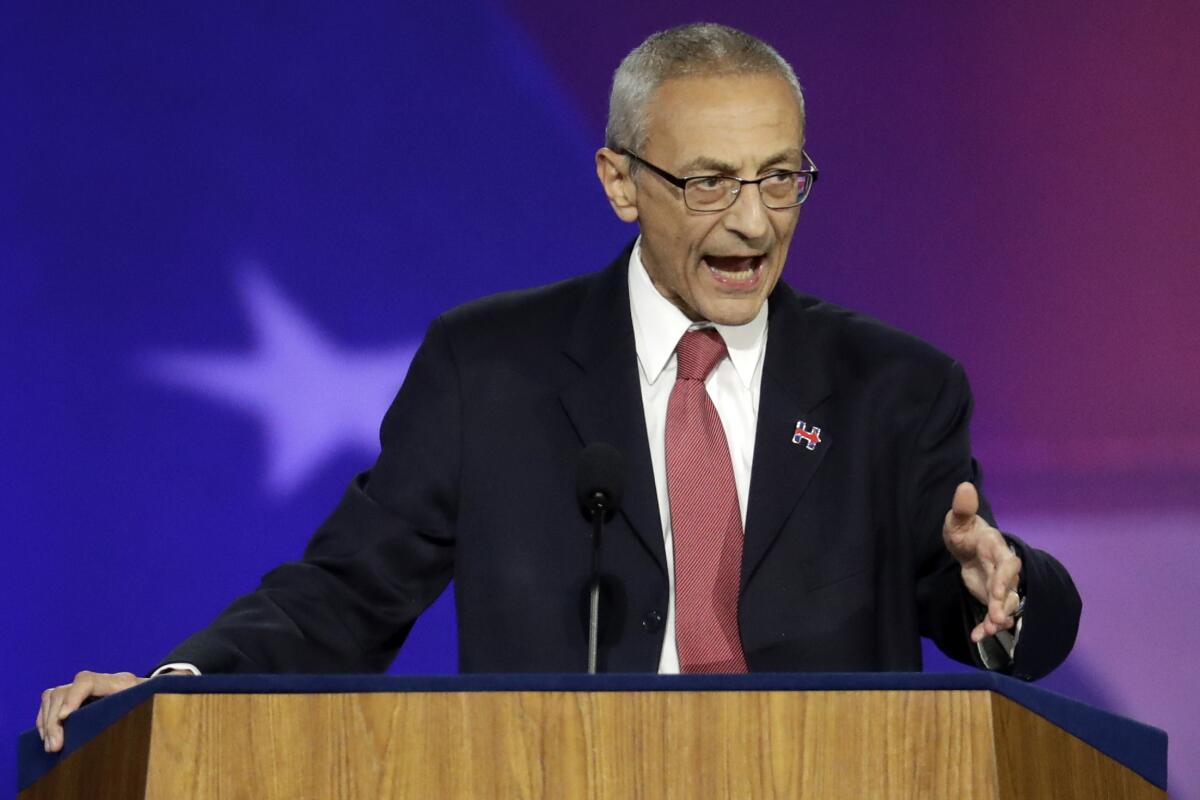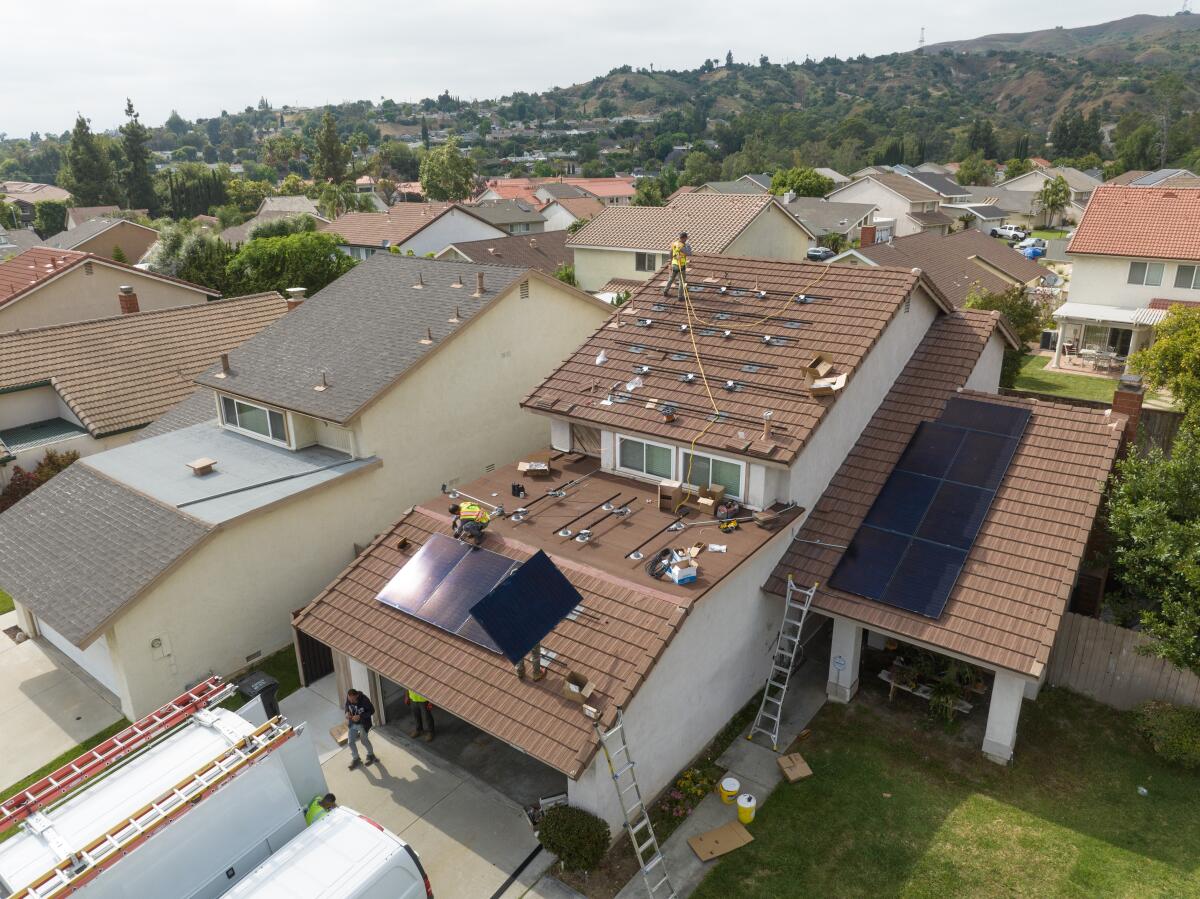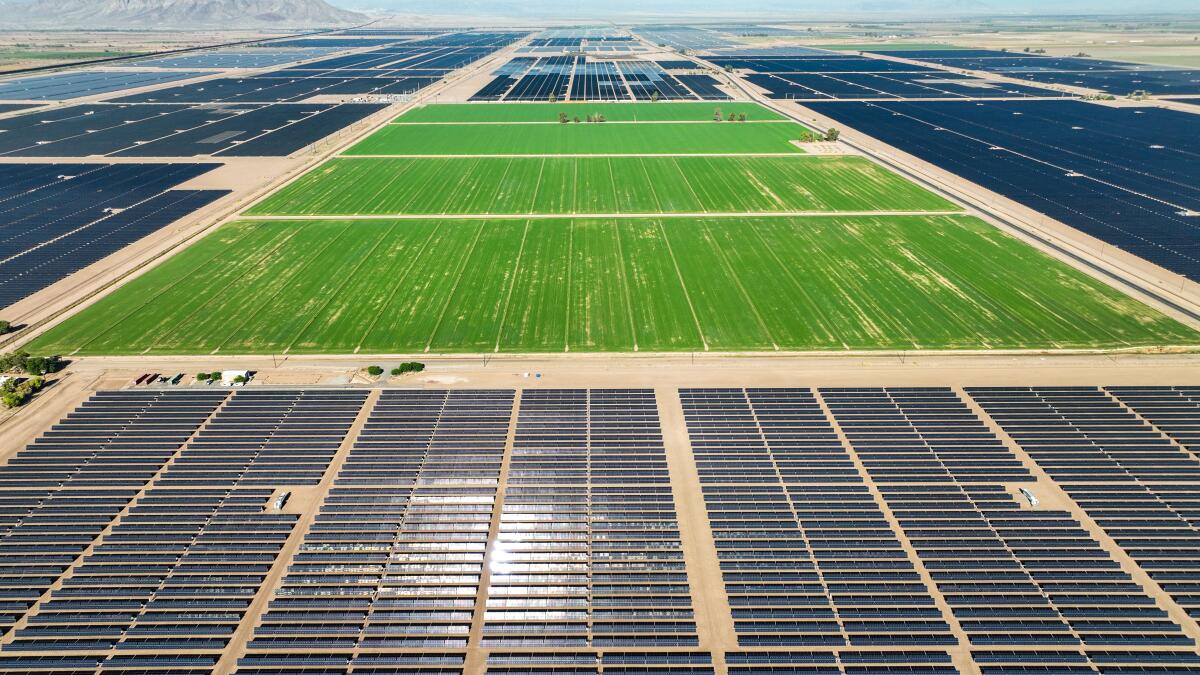Gov. Gavin Newsom's appointees could vote next week on a widely criticized plan that climate activists, solar installers and labor unions say would pointlessly slow California efforts to phase out fossil fuels and limit energy bills for low-income families.
A few days later, Newsom will travel to the Vatican, at Pope Francis' invitation, to speak about the urgency of the climate crisis.
The dissonance would be funny if it weren't so scary.
California is still a global leader in combating the deadly consequences of coal, oil and gas combustion. Newsom has played a role by requiring an end to the sale of cars and light trucks that run solely on oil-based fuels by 2035, among other initiatives.
But monopoly utility companies such as Pacific Gas & Electric and Southern California Edison — and the politically powerful labor unions that represent many of their employees, most notably Local 1245 of the International Brotherhood of Electrical Workers — have engaged in a remarkably successful campaign over the last few years to reduce financial incentives for rooftop solar panels, which don't fuel utility industry profits and are typically installed by non-union workers.
Some environmental groups, meanwhile, support rooftop solar but have questioned the wisdom of building large solar farms on undisturbed public lands that are currently home to tortoises, sage grouse and other animals. Some conservationists have tried to block construction of those solar farms despite a mountain of evidence that we'll need them — lots of them — to avert a future of ever-worsening heat waves, wildfires, storms and droughts, with dangerous repercussions for wildlife and humans alike.
In theory, nearly all of the key players duking it out in Sacramento — utility companies, unions, rooftop solar installers, consumer watchdogs, environmental groups, large-scale solar developers — agree that we'll need lots of solar from lots of sources.
Massive solar projects in the desert, small rooftop systems — all of the above, please. In a state still heavily dependent on planet-warming natural gas for electricity, there are plenty of climate-friendly electrons — and plenty of jobs — to go around.
In theory, anyway.
In practice, unfortunately, many suppliers and supporters of large-scale and rooftop solar have done hardly anything to help each other politically. And some of them have torn each other to shreds. Especially in California, this solar infighting is exasperating and increasingly embarrassing. With time running short to stop burning most if not all fossil fuels, it needs to end.
We could use a grand bargain — a political masterstroke to end the solar squabbling.

One of two cuts made by landscape artist Michael Heizer for "Double Negative" in the Nevada desert. A solar project would have been visible in this direction, had it not been canceled in the face of public opposition. (Brian van der Brug / Los Angeles Times)
The issue being voted on by Newsom's appointees next week was the subject of such a deal, on a smaller scale.
In contrast to the battle over rooftop solar incentives — which were reduced dramatically after a 5-0 vote by the governor's appointees to the California Public Utilities Commission, triggering a sharp drop in new business and layoffs across the industry over the last year — small-scale solar developers managed to secure broad support for "community solar" incentives.
Community solar projects are much smaller than desert solar farms and built near neighborhoods. Apartment renters and others who can't install their own rooftop panels, or can't afford them, sign up to buy some of the energy. Community solar can help low-income homes save money and keep their lights on when climate-fueled heat waves and storms batter the power grid.
Thus far, California has lagged far behind other states on community solar. But an incentive program crafted by community solar companies won the backing of the Utility Reform Network, an influential consumer watchdog group that had campaigned to cut rooftop solar incentives. Although the group had argued that rooftop solar incentives raise electricity bills for everyone, it got on board with community solar because of an incentive structure that it believed would limit the so-called "cost shift."
The Coalition of California Utility Employees — whose members include IBEW Local 1245 — also broke with its past opposition to small-scale solar and lobbied for the community plan, almost certainly because it requires union-level wages for workers.
Alas, all that coalition-building might be for naught.
Public Utilities Commission staff recommended in March that Newsom's commissioners instead approve a different community solar plan recommended by Edison. Critics say Edison's proposal would stop community solar from gaining a foothold. They worry that if it fails, it could jeopardize parts of a $250-million federal grant announced by the Biden administration last week.
"The economics are just nonviable," said Brandon Smithwood, vice president of policy at Dimension Renewable Energy.
It's not clear if Newsom's appointees will approve the Edison-backed plan. They've met twice behind closed doors to discuss the proposal, an unusual step that could indicate a compromise is in the works. The vote is scheduled for next Thursday.
In the meantime, Newsom and his deputies have been hearing from folks across the political spectrum.
Neil Chatterjee, who was nominated by President Trump to run a federal energy agency, wrote to Alice Reynolds, president of the Public Utilities Commission, questioning the legal logic espoused by Edison and endorsed by commission staffers. If Edison's plan is approved, Chatterjee wrote, the legal basis could be used to undermine community solar programs across the country.
Smithwood also told me he's heard from multiple people that New York Gov. Kathy Hochul called Newsom's office to express that the Public Utilities Commission proposal could undermine community solar in her state. Smithwood has also heard that President Biden's clean energy advisor, John Podesta, contacted Newsom's office to request stronger support for community solar.

President Biden's clean energy advisor, John Podesta. (Patrick Semansky / Associated Press)
A spokesperson for New York's state energy agency didn't respond to my request for comment on whether such a phone call took place. A White House official who works with Podesta declined to discuss any communications that may have occurred.
Newsom spokesperson Alex Stack declined to comment directly on the utilities commission process.
"California has more solar capacity than any other state in the country and is bringing on more and more solar every single year, and it's critical that we continue bringing online more cost-effective renewable and zero-carbon energy," he said in an email.
To Edison's credit, the utility put me on the phone with Erica Bowman, vice president of strategy, planning and performance. She said the company's position on community solar has been driven by a desire to keep electric bills from rising too much higher, at a time when volatile gas prices and costly investments in burying power lines to prevent wildfire ignitions are already pushing up rates. She noted that the utility commission's internal ratepayer watchdog also supports the Edison-backed proposal.
"We're supportive of solar. We just want it to be fairly compensated," Bowman said.
But what does "fair compensation" look like? What does "fair" even mean in the world we live in today?
This is why I keep circling back to the idea of a grand bargain to end the solar squabbling.
Most experts and advocates agree we'll need lots of big solar farms, lots of rooftop panels and some community solar to replace all the gas plants still churning away along the Southern California coast, plus the nearly three dozen coal plants scattered across the American West — some of which still power California. Not to mention wind farms, batteries and other clean enegy solutions. And we need to start building it fast, with scientists calling for reductions in climate pollution of more than 40% by 2030.
The main problem isn't technology. It's politics. How can we speed up construction of every kind of solar without falling victim to the political trip wires of utilities designed to serve investors above all else, and unions hard-wired to block anything built by non-union labor, and environmentalists uncomfortable with the idea of covering even small portions of the desert with solar?
In other words, how can well-meaning citizens persuade their elected officials to stop digging in their heels on one particular type of solar and start making the difficult compromises that will be needed to avoid the worst harms of the climate crisis?
Over the last few days, I pitched my "grand bargain" concept to 10 veterans of California climate policy. The basic outline is that instead of continuing to fight, the sparring parties should support each other's policy priorities, and collectively get things done that they otherwise wouldn't have accomplished — and set a global example on stemming global warming in the process.
On the whole, my sources weren't especially optimistic about the idea.

A house in Brea gets solar panels installed in 2023. (Myung J. Chun / Los Angeles Times)
One problem: The deep-pocketed utility workers unions don't really need help at the Capitol. Scott Wetch, who's spent 30 years lobbying for IBEW Local 1245, admitted as much when I asked what it would take to get him to the bargaining table.
"There's not many legislative wins that have eluded us," he said.
Bernadette Del Chiaro, executive director of the California Solar & Storage Assn., was similarly dour on my pitch. She walked me through a long list of pro-rooftop solar bills that she said Wetch and his allies at Edison and PG&E thwarted last month, including one that would have stopped utilities from spending customer money on what critics call thinly veiled public relations campaigns, and another that would have required the Public Utilities Commission to take a broader view of the benefits of rooftop solar.
"We've run into a buzz saw deep in the bowels of the hallways of power," Del Chiaro said.
Still, Del Chiaro sounded hopeful that so many pro-rooftop solar bills were proposed in the first place. She thinks lawmakers are responding to a groundswell of public support for the clean energy technology following the decision to slash incentives.
Laura Deehan, who leads the advocacy group Environment California, is similarly skeptical that there's a game-changing deal to be made with utilities and utility unions on rooftop solar. To her mind, the key is building on the public frustration with last year's cuts to "net metering" incentives for rooftop solar, and continuing to pressure legislators until they're forced to act.
"We've got to figure out who's with us, and work with them to be louder and more persuasive than the other side," she said.
If that's possible, excellent. The question is whether it's possible.
My advice to the folks fighting for rooftop and community solar would be to keep fighting — but also not to underestimate the potential for some dealmaking. Maybe not with IBEW Local 1245, but with Edison, PG&E and San Diego Gas & Electric, and with the developers building big solar farms that hook up to the transmission lines operated by those utility companies.
If you're a rooftop solar installer or conservation group feeling whiplash from choices made by the Public Utilities Commission, it probably seems like life is pretty easy for Edison, PG&E and SDG&E. By comparison, it is. Their investors will be just fine.
But the utilities still face obstacles as they hurry to meet the state's climate goals. The same goes for large-scale solar, wind and power-line developers. Those obstacles include arduously slow permitting for energy projects, opposition from conservationists and farmers to industrial solar farms, and an absurd backlog of renewable power plants waiting to plug into the grid.

Solar projects surround Imperial Valley farmland, which is irrigated by Colorado River water, in California's southeastern corner. (Robert Gauthier / Los Angeles Times)
The hardcore conservationists most fiercely opposed to building solar in the desert aren't likely to bend. And the mainstream environmental groups more likely to compromise on this stuff don't wield huge amounts of political power in Sacramento.
But if those groups were willing to talk about streamlined permitting for solar farms and electric lines in areas with not as many environmental conflicts, such as agricultural lands where water is increasingly scarce? That could be an "important starting point" for discussions, said Shannon Eddy, executive director of the Large-scale Solar Assn., an industry trade group.
"We cannot litigate every single solar project. People have to let go," Eddy said. "There are going to be trade-offs."
The utility monopolies, much as some environmentalists are loath to deal with them, may also be open to trade-offs.
Edison and PG&E in particular have staked their future growth on a climate-friendly, all-electric future in which solar panels, wind turbines and batteries fuel a world of electric cars, heat pumps and induction stoves. That means building lots of power lines and other grid gizmos, which will earn guaranteed profits for Edison and PG&E shareholders, paid for by customers.
It also means the utilities, too, need political support building power lines to connect solar and wind farms to big cities.
"How can we get projects moving much more quickly than they are today?" Edison's Bowman asked.
After asking my Sacramento-savvy contacts about the grand bargain concept, I'm not sure if I'm more or less convinced that it's a good idea. But I have concluded that if it's going to happen, there's basically one person who can bring it about.
That would be the governor.
Newsom has delved into thorny energy politics before — at least when he found it necessary to avoid a repeat of 2020's rolling blackouts. He averted the closure of the Diablo Canyon nuclear plant, which lined up with his climate change goals. He ensured that several coastal gas plants would keep running beyond their planned shutdown dates. And his move to end the sale of most gasoline cars by 2035 was the kind of signature climate accomplishment that would make great fodder for a presidential run.
Will Newsom be willing to bring California's ridiculous solar infighting to a long-overdue end?
We could get an early glimpse next week, with the scheduled vote on community solar.
After that, maybe Pope Francis can share some words of wisdom with the governor.
We'll be back in your inbox Tuesday. To view this newsletter in your web browser, click here. And for more climate and environment news, follow @Sammy_Roth on X.


No comments:
Post a Comment